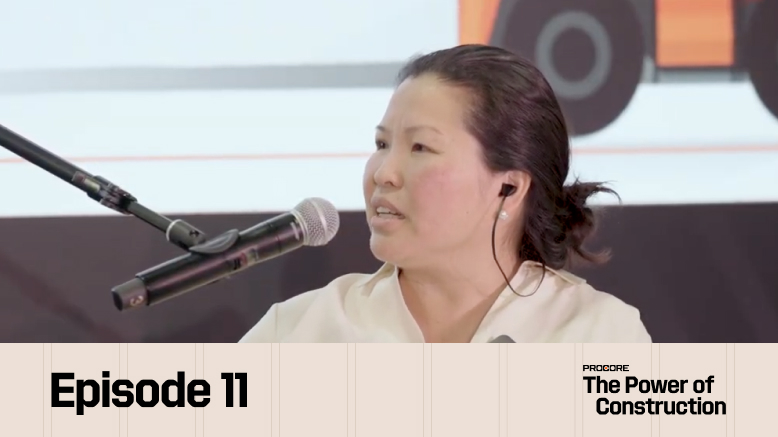Defining ESG in Construction Context
Jennifer Downey, Director of Environmental Social Governance (ESG) at Turner Construction, breaks down ESG into three clear pillars:
- Environmental: Impact on the planet, including energy use, water consumption, waste production, and greenhouse gas emissions
- Social: Impact on people, encompassing employees, business partners, and communities
- Governance: Processes and standards that ensure consistency, rigor, and accountability in ESG measurements and reporting
ESG as Cultural Extension
Rather than treating ESG as an additional burden, Turner positions it as a natural extension of their existing culture and values. This approach eliminates resistance by building on established foundations rather than introducing entirely new concepts.
The integration feels organic because it codifies behaviors and commitments that already exist within the organization.
The Journey from Architecture to ESG Leadership
Downey's career path from architecture through BIM and innovation to ESG leadership illustrates the evolution of purposeful innovation in construction.
Her background in environmental sustainability from architectural practice, combined with technology experience, provides a unique perspective on how innovation can drive positive impact.
Materiality Assessment and Strategic Focus
Turner's ESG strategy began with a comprehensive materiality assessment involving internal and external stakeholders. This process helps prioritize focus areas because ESG covers numerous topics, and companies must strategically choose where to concentrate their efforts for maximum impact.
The Three Pillars Framework
Turner organizes their ESG efforts into three pillars with seven impact areas:
Sustain Our Planet:
- Projects: Energy efficiency, material sourcing, embodied carbon
- Operations: Energy, water, waste, and ecosystem impacts during construction
Protect and Actively Care for People:
- Employees: Benefits, training, career development, safety
- Business Partners: Trade partner safety, worker well-being, mental health, supply chain impact
- Communities: Local economic development, workforce development, MBE engagement
Purposefully Transform Our Industry:
- Business: Ethics, compliance, human rights, accountability
- World: Innovation driving industry-wide positive change
Active Caring Philosophy
Turner's "Active Caring" culture emphasizes treating every person on job sites as individuals—taking time to connect, understand their needs, and support their success.
This simple but powerful concept extends beyond job sites to encompass global environmental stewardship.
Transparency and Public Accountability
Turner's first published ESG report demonstrates their commitment to transparency and accountability. Like safety initiatives, ESG progress benefits from industry-wide collaboration and shared learning rather than competitive secrecy.
Public reporting creates accountability while enabling collective advancement.
Scope 1, 2, and 3 Emissions
Downey explains the three categories of greenhouse gas emissions:
- Scope 1: Direct emissions from owned/operated fossil fuel sources (generators, fleet vehicles)
- Scope 2: Electricity from owned/operated assets (offices, job sites, electric vehicle charging)
- Scope 3: Upstream and downstream emissions (embodied carbon in materials, operational energy of completed buildings, transportation, business travel)
Global Influence on Local Practice
European legislation and global client requirements increasingly influence ESG practices in the US market. Turner's global clients subject to European regulations create supply chain requirements that drive ESG adoption across their entire network of contractors and suppliers.
Data Foundation and Improvement Strategies
Turner's 2024 focus on establishing robust baseline data provides the foundation for 2025 improvement and reduction strategies.
This mirrors lean construction principles of standardization before optimization, ensuring accurate measurement before implementing changes.
Technology Integration and Innovation
ESG initiatives increasingly leverage technology solutions, from AI-powered document analysis to integrated platforms that automate data collection and reporting.
These tools reduce administrative burden while improving accuracy and consistency of ESG measurements.
Community Engagement Beyond Projects
Turner's community impact extends beyond individual projects to include:
- Workforce development programs
- MBE (Minority Business Enterprise) development and engagement
- Turner School of Construction Management
- Local economic development initiatives
- Volunteer activities and community sponsorships
Rapid-Fire Q&A with Jennifer Downey
Book Recommendation: Co Intelligence: Living and Working with AI by Ethan Mollick
Sources for Different Perspectives: Colleagues' expertise and ChatGPT for exploring ideas
Advice to Younger Self: Rely more on resources and ask for help—don't try to do everything alone
Innovation Shaping Construction's Future: Artificial Intelligence
Industry Tagline: "Building the future sustainably"
Key Takeaways
This episode demonstrates how construction companies can lead community impact through:
- Cultural Integration: ESG works best when it extends existing values rather than imposing new requirements
- Stakeholder Engagement: Materiality assessments help prioritize efforts and build stakeholder alignment
- Transparency: Public reporting creates accountability and enables industry-wide progress
- Active Caring: Simple human connection principles can transform workplace culture
- Data-Driven Improvement: Baseline measurement enables targeted improvement strategies
- Supply Chain Influence: Large contractors can drive positive change throughout their networks
- Innovation Application: Technology solutions can enhance ESG measurement and reporting
- Community Partnership: True community impact requires ongoing relationship building beyond individual projects
Jennifer Downey and Turner Construction demonstrate that ESG isn't just about compliance or reporting—it's about systematically improving how construction companies impact people, planet, and communities. By treating ESG as a natural extension of their culture and values, Turner provides a practical model for how the construction industry can lead positive change while maintaining business success. The conversation reveals that building better communities isn't just the right thing to do—it's a strategic imperative that drives innovation, employee engagement, and long-term business value.







